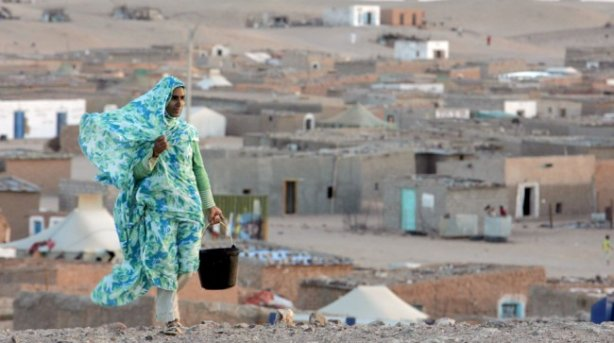Evidence continues to grow that members of the Polisario Front have been engaged in drug and arms smuggling in the Sahel, gun battles and incursions in Mali, kidnappings and collaboration with AQIM, and as mercenaries for Qaddafi in Libya. Given escalating security concerns in the region, rather than subsidize the camps, which are becoming a recruiting ground for terrorists and traffickers, US assistance should be redirected to promote durable solutions prioritizing refugee resettlement, thus removing the security threat emanating from the camps and improving the humanitarian situation of the refugees.
AQIM’s growing ties with Polisario members and other militants in the region—Boko Haram in Nigeria and al-Shabaab in Somalia—have created what AFRICOM head US General Carter Ham calls a “threat to the US”i and UK Foreign Secretary William Hague says could have a “profoundly destabilizing effect on countries in North Africa and the Gulf.”ii UN Secretary General Ban Ki-moon has warned that ‘inaction could be catastrophic’ as AQIM and other militants form alliances with traffickers smuggling almost $1 billion in cocaine a year through Africa’s Sahel.iii A recent ICTS study confirms that the Polisario camps have become “a recruiting ground for terrorists, traffickers, and other criminal enterprises,”iv and a new Carnegie Paper reports that “deteriorating social and political conditions in the camps in Tindouf represent a tinderbox waiting to explode.” The AQIM-Polisario connection is “major security threat”v to the region and to aid workers and refugees forced to live in the Tindouf camps, which rely heavily on international and US aid dollars to exist. Instead, this money should be used for promoting durable solutions to the refugee crisis.
Text BoxAccording to multiple reports, the Polisario violates refugee rights and is the leading impediment to refugee resettlement.vi Refugees in the camps are among the only refugees in the world who are welcome to go elsewhere, if the Polisario would let them. Since 1990 international agencies have spent more than $1 billion perpetuating these conditions in the camps—more than $300 million from the US.vii Much of it has reportedly been diverted to profit some Polisario leaders. While international aid has provided vital resources to the refugees, it has done little to promote durable solutions, a principal mandate of the UN High Commissioner for Refugees (UNHCR) under international refugee law. Rather than perpetuate a humanitarian crisis and an increasingly volatile security crisis, US support to UNHCR should be targeted for the promotion of durable solutions, including voluntary repatriation, local integration, and resettlement in a third country.
Now is the time to take action to guarantee the stability and security of the Maghreb and Sahel by resolving the refugee crisis. UNHCR must take action to create the conditions for the implementation of durable solutions including: conduct of a census to identify and provide documentation to Sahrawi refugees; establishment of an intimidation-free, voluntary repatriation program for those Sahrawi refugees who wish to return to their previous homelands and families in Morocco; establishment of a viable resettlement program for those Sahrawi refugees who wish to settle in a third country, and creation of a partnership with the Algerian government to improve prospects for local integration for those who want to remain in Algeria.
US and international aid dollars should only be used to support refugee rights and durable solutions, not to deny their rights or subsidize a recruiting ground for terrorists and traffickers.
A review of documented incidents and expert reports confirms that the Polisario-run camps are indeed a recruiting ground for AQIM, a hub for opportunistic Polisario members trafficking arms across the Sahel and drugs into Europe, and a threat to the security of the region and reforms of the Arab Spring. The most significant of these recent developments includes:
Polisario members have assisted and carried out AQIM kidnappings – On October 23, 2011, Polisario insiders reportedly helped an AQIM offshoot kidnap three Western aid workers from the Polisario-run camps near Tindouf, Algeria. The assailants were supplied weapons and directions to the victims, who were at the Polisario headquarters location in the Rabouni camp, and they had to travel through several security checkpoints to make their escape.viii AQIM offshoot ‘al Qaeda in Polisario camps’ reportedly seized two more victims, French, on November 24.ix In a separate incident, Mauritanian court records reveal AQIM paid Polisario veterans to kidnap Spanish nationals in 2009.x
Polisario drug and arms smuggling rings in the Sahel – In the last two years, Algeria, Mali, and Mauritania have arrested dozens of Polisario members caught leading or operating major drug and arms trafficking rings in the region, linked to AQIM and South American cartels engaged in trans-Atlantic drugs-for-arms trade with end markets in Europe and the Americas.xi
Polisario-related incursions and battles in Mali – On Dec. 15, a Polisario cadre invaded Mali, killing one person, kidnapping three, and provoking a Mali warning that ‘this isn’t the Wild West.’xii In Sept. 2011, a gun battle between Polisario and rival drug gangs killed four in north Mali.xiii On March 22, 2012, Mali’s democratically elected government was overthrown in a coup that analysts say was sparked by a “toxic cocktail of rebels, weapons, refugees, drought, smugglers and violent Islamic militants” that spilled into Mali with Tuareg and other pro-Qaddafi forces from the Libya conflict.xiv
Polisario mercenaries hired by Qaddafi to fight NATO and Libyan rebels – Last spring, senior NATO officials were reported to receive reliable information that Qaddafi paid hundreds of Polisario mercenaries $10,000 each to fight for him in Libya. xv


Soyez le premier à commenter